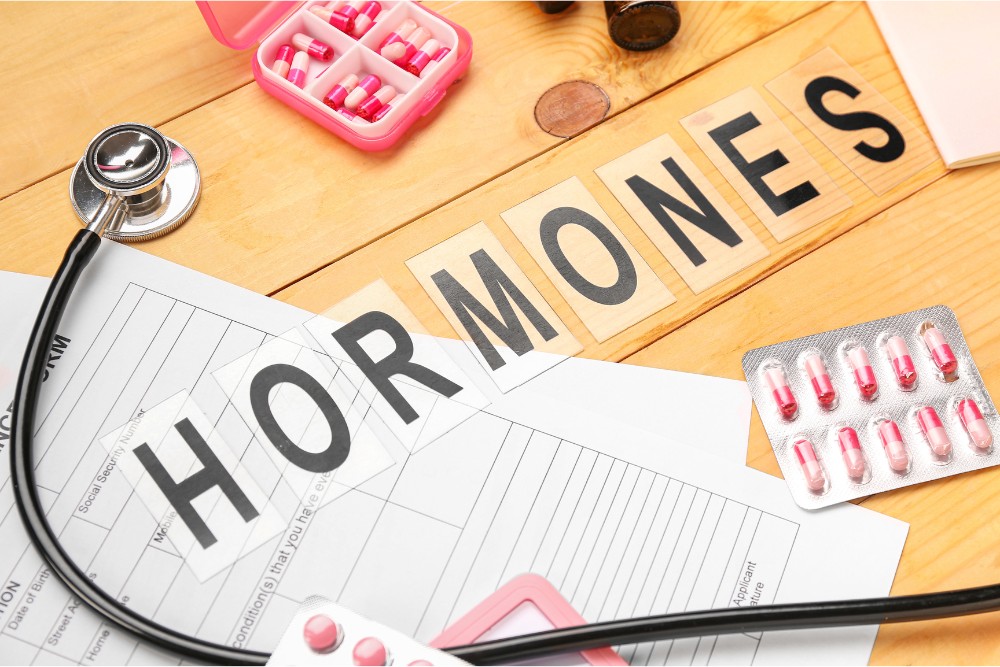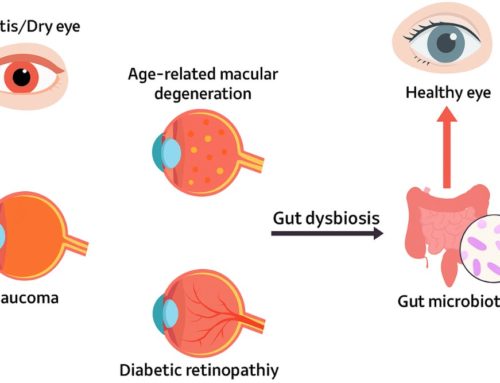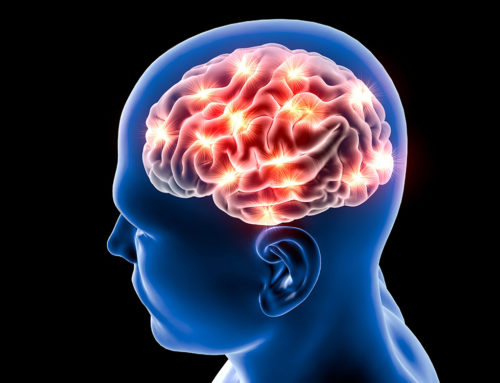The endocrine system creates the various hormones that travel through the body to control its functions. When this complex system is disrupted, altered chemical production causes hormonal imbalances. Several signs notify you of such occurrences, including fatigue, sleep issues, mood changes, or a reduced sex drive.
Though most imbalances cause physical symptoms, neurological problems may also indicate an issue, including memory issues or difficulty concentrating. If you experience these or other concerning manifestations, speak to your doctor. We`ll cover the most common concerns in the following sections.

Hormonal Imbalance Signs in Both Genders
Men and women create similar hormones, though some levels vary within each gender. Imbalances don’t always affect us the same way, so learning what to watch for is vital to identifying a problem.
1. Unexplained weight gain or loss
Weight fluctuations often result from hormone-related digestive issues. In women, elevated progesterone levels slow digestion, leading to bloating or constipation. Increased estrogen has the opposite effect, increasing digestion and causing diarrhea.
Weight changes from digestive and bowel complications are also signs of hormonal imbalances in men. Studies show higher levels of testosterone and other chemicals increase the risk of IBS, causing constipation and diarrhea.
2. Fatigue or low energy
Feeling tired on occasion is normal, but frequent low energy may indicate altered hormone production. For instance, it could be a hormonal imbalance sign in the adrenal glands, which produce cortisol, aldosterone, epinephrine, and norepinephrine.
Adrenal fatigue occurs when the adrenal glands aren’t producing the proper hormone levels. Cushing’s syndrome occurs when too much cortisol is produced, also causing fatigue.
3. Sleep disorders
According to experts, cortisol regulates the sleep-wake cycle, with high levels in the morning that decrease throughout the day. Stress also triggers cortisol production. Chronic stress can maintain high cortisol levels, triggering insomnia and excessive daytime sleepiness.
Sleep issues are also signs of reproductive hormonal imbalances in women. Menstruation, pregnancy, and menopause alter various chemical levels. Some changes frequently promote sleep while others disrupt it throughout a woman’s lifespan.
4. Mood swings, anxiety, depression, brain fog
Altered brain chemicals affect mental health. For instance, a common sign of hormonal imbalance is mood swings. Behavior-altering hormone fluctuations occur during natural life stages or unexpected medical conditions.
A frequent anxiety cause is chemical changes, including altered dopamine and serotonin. Experts state that depression may also result from altered brain hormone levels. Women and seniors frequently experience brain fog during hormonal changes.
5. Low libido
A decreased sex drive happens during stressful times or after you’re injured. Medical conditions may also reduce your interest in your partner. However, it’s frequently a sign of a hormonal imbalance.
For women, estrogen levels drop during menopause, lowering their libido. When men reach 30 years of age, testosterone levels slowly decrease. Erectile function may also suffer, reducing their sex drive.
6. Dry skin or brittle hair/nails
Your skin, hair, and nails are all affected during a hormone imbalance. Dry skin is often a sign of thyroid-stimulating hormone deficiency, also called hypothyroidism.
An underactive thyroid may cause rough, brittle hair and even hair loss if uncorrected. Experts also state that brittle nails are present in 5% of hyperthyroid patients and 90% of hypothyroid patients.
Resources:
- NWHealth, Be Well: The Hormone-Digestion Connection
https://www.nwhealth.edu/news/be-well-the-hormone-digestion-connection/ - PubMed, Oct. 31, Male sex hormones may influence the symptoms of irritable bowel syndrome in young men
https://pubmed.ncbi.nlm.nih.gov/18974649/ - Johns Hopkins, Adrenal Glands
https://www.hopkinsmedicine.org/health/conditions-and-diseases/adrenal-glands - Mayo Clinic, Adrenal fatigue: What causes it?
https://www.mayoclinic.org/diseases-conditions/addisons-disease/expert-answers/adrenal-fatigue/faq-20057906#:~:text=It’s%20a%20general%20term%20used,cravings%20for%20sugar%20and%20salt - PMC, June 1, 2022, Sleep and Circadian Regulation of Cortisol: A short review
https://pmc.ncbi.nlm.nih.gov/articles/PMC8813037/ - PubMed, March 6, 2023, Sleep Disturbances Across a Woman’s Lifespan: What Is The Role of Reproductive Hormones
https://pubmed.ncbi.nlm.nih.gov/37091307/ - Cleveland Clinic, Mood Swings
https://my.clevelandclinic.org/health/symptoms/mood-swings - Cleveland Clinic, Anxiety Disorders
https://my.clevelandclinic.org/health/diseases/9536-anxiety-disorders - Mayo Clinic, Depression
https://www.mayoclinic.org/diseases-conditions/depression/symptoms-causes/syc-20356007 - DMC, Brain Fog and When to Worry
https://www.dmc.org/healthy-living/corporate-content/when-should-you-worry-about-brain-fog - Urology Care Foundation, 2021, Ask the Experts: Does a Low Sex Drive Mean I Have a Hormone Imbalance?
https://www.urologyhealth.org/healthy-living/urologyhealth-extra/magazine-archives/winter-2021/ask-the-experts-does-a-low-sex-drive-mean-i-have-a-hormone-imbalance - Mayo Clinic, Hypopituitarism
https://www.mayoclinic.org/diseases-conditions/hypopituitarism/symptoms-causes/syc-20351645 - Hair Science, Causes of Dry, Brittle Hair (And How to Fix It)
https://hairscience.org/news/brittle-hair/#What_Causes_Brittle_Hair - PMC, Nov. 20, 2019, Pathogenesis, Clinical Signs and Treatment Recommendations in Brittle Nails: A Review
https://pmc.ncbi.nlm.nih.gov/articles/PMC6994568/
This content comprises informative and educational resources only and can not be considered as a substitute for professional health or medical guidance. Reliance on any information provided in this article is solely at your own risk. If you have any inquiries or apprehensions about your medical condition or health goals, talk with a licensed physician or healthcare provider.






Leave A Comment